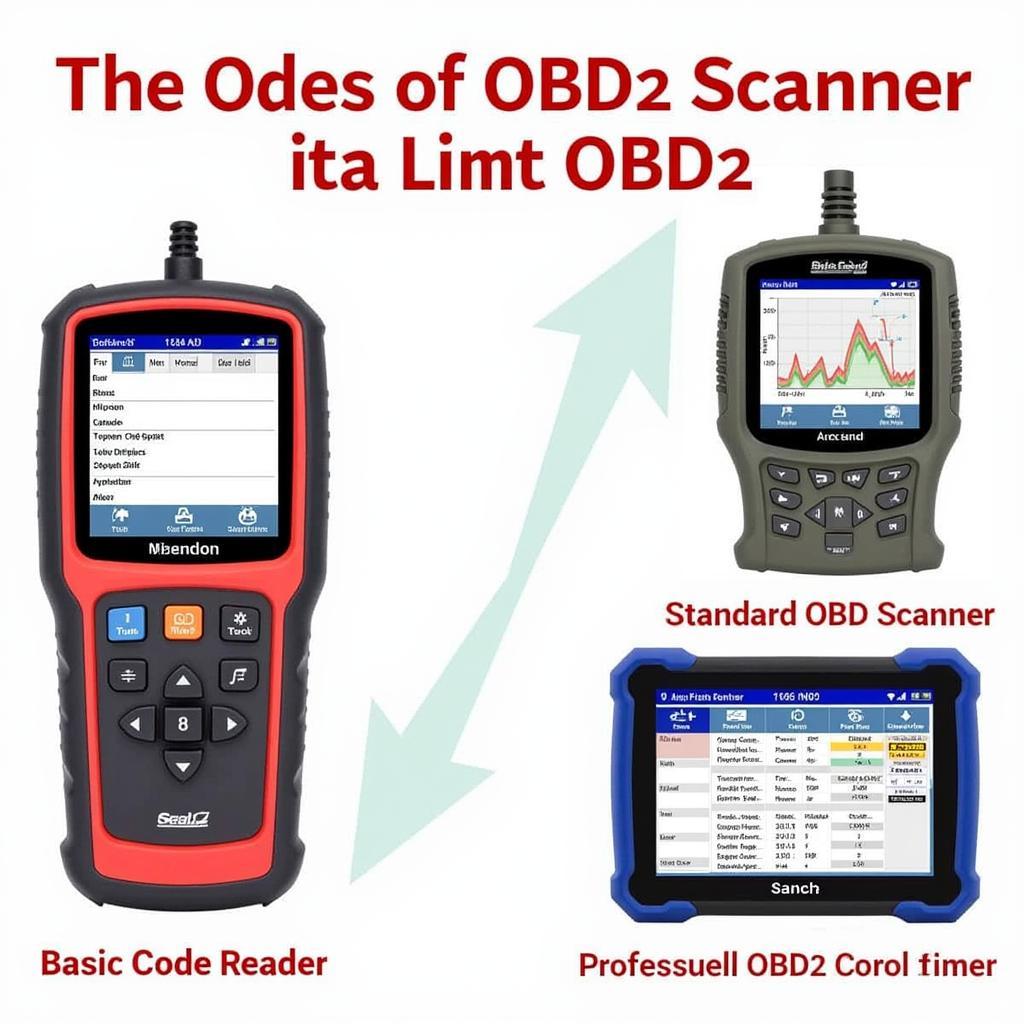A car diagnostic kit is an essential tool for any car owner or professional mechanic. It allows you to quickly and easily identify problems with your vehicle, saving you time and money on repairs. Whether you’re a DIY enthusiast or a seasoned pro, understanding how to use a car diagnostic kit can empower you to take control of your vehicle’s health. This comprehensive guide will delve into the world of car diagnostic kits, exploring their types, features, benefits, and how to choose the right one for your needs.
Understanding Car Diagnostic Kits: Types and Functionality
Car diagnostic kits come in various forms, each with its own set of capabilities. From basic code readers to advanced professional scanners, choosing the right kit depends on your technical skills and the depth of information you require. Let’s break down the most common types:
- Basic Code Readers: These entry-level devices read and display Diagnostic Trouble Codes (DTCs), which are error codes stored in your car’s computer. They are affordable and easy to use, perfect for identifying simple issues.
- OBD2 Scanners: These offer more advanced features than basic code readers. They can access live data streams from your car’s sensors, allowing you to monitor engine performance, fuel efficiency, and other critical parameters.
- Professional Scanners: These high-end tools provide comprehensive diagnostic capabilities, including bi-directional control, which allows you to test individual components. They are typically used by professional mechanics.
Choosing the Right Car Diagnostic Kit: Features to Consider
Before investing in a car diagnostic kit, consider these key features:
- Vehicle Compatibility: Ensure the kit is compatible with your car’s make, model, and year. Most modern cars use the OBD2 standard, but older vehicles may require different connectors.
- Code Reading and Clearing: All diagnostic kits should be able to read and clear DTCs.
- Live Data Streaming: This feature allows you to monitor real-time data from your car’s sensors, providing valuable insights into its performance.
- Bi-directional Control: This advanced feature allows you to activate specific components, such as fuel injectors or solenoids, for testing purposes.
- Software Updates: Regular software updates ensure the kit remains compatible with the latest vehicle models and diagnostic protocols.
- User Interface: A clear and intuitive user interface makes the kit easier to navigate and interpret data.
Benefits of Owning a Car Diagnostic Kit
Investing in a car diagnostic kit offers numerous benefits:
- Early Problem Detection: Identify potential issues early on, preventing costly repairs down the road.
- Save Money on Repairs: By diagnosing problems yourself, you can avoid unnecessary trips to the mechanic.
- Increased Vehicle Knowledge: Gain a deeper understanding of how your car works and its overall health.
- Improved Resale Value: Regular maintenance and diagnostics can contribute to a higher resale value.
- Empowerment and Control: Take control of your car’s maintenance and avoid being reliant on others for diagnostics.
How to Use a Car Diagnostic Kit: A Step-by-Step Guide
Using a car diagnostic kit is relatively straightforward:
- Locate the OBD2 port in your vehicle (usually under the dashboard).
- Connect the diagnostic kit to the OBD2 port.
- Turn on the ignition (do not start the engine).
- Follow the instructions provided with your specific kit to access and interpret the data.
What are the Most Common Uses for a Car Diagnostic Kit?
Car diagnostic kits are versatile tools with a wide range of applications:
- Checking Engine Light: Diagnose the cause of the check engine light and determine the necessary repairs.
- Monitoring Sensor Data: Track real-time data from various sensors, such as oxygen sensors, MAF sensors, and coolant temperature sensors.
- Testing Components: Use bi-directional control to test individual components, such as fuel injectors or solenoids.
- Resetting Warning Lights: Clear DTCs and reset warning lights after repairs have been completed.
“A good car diagnostic kit is like having a mechanic in your pocket. It gives you the power to understand and address your car’s issues quickly and efficiently.” – John Smith, Automotive Engineer
Conclusion: Empower Yourself with a Car Diagnostic Kit
A car diagnostic kit is a valuable investment for any car owner. Whether you’re a DIY enthusiast or simply want to stay informed about your car’s health, a diagnostic kit can empower you to take control of your vehicle’s maintenance and save money on repairs. Choose the right kit based on your needs and technical skills, and unlock the secrets of your car’s performance.
FAQ
- What is an OBD2 port?
- What are Diagnostic Trouble Codes (DTCs)?
- Can I use any car diagnostic kit on any car?
- How often should I use a car diagnostic kit?
- What should I do if my car diagnostic kit shows an error code?
- Are there any safety precautions I should take when using a car diagnostic kit?
- Can a car diagnostic kit fix my car’s problems?
You might also be interested in our articles on car maintenance tips and choosing the right car parts.
Need further assistance? Contact us via WhatsApp: +1(641)206-8880 or Email: [email protected]. Our customer support team is available 24/7.



